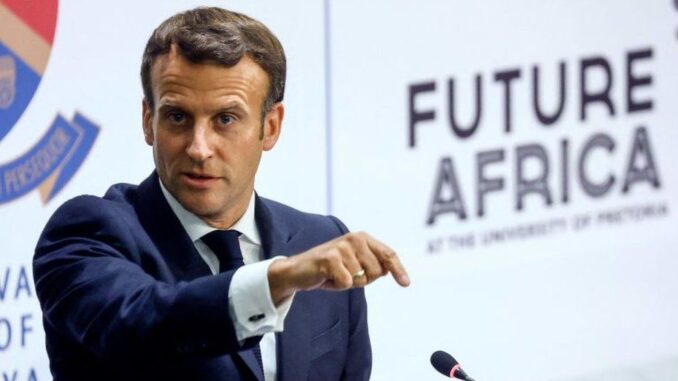
Emmanuel Macron threatens to withdraw the French military if Mali moves in the direction of radical Islamism. In an interview with the JDD, the French head of state also reaffirmed his commitment to the transition process after what he had already described as an “unacceptable coup d’état. These remarks come as West African leaders meet to decide on the thorny issue of their response to the second coup by the Malian military, led by Assimi Goïta.
Emmanuel Macron’s warning is clear: “I will not stay by the side of a country where there is no longer democratic legitimacy or transition,” he declared in the columns of the Journal du Dimanche. The French president said he “passed the message” to his counterparts in the region. This is a way to put pressure on them before the ECOWAS summit scheduled for this Sunday afternoon, May 30.
Another strong point of this interview is the threat of the withdrawal of the Barkhane force: “To Malian President Bah N’Daw, who was very rigorous about the seal between the government and the jihadists, I said ‘radical Islamism in Mali with our soldiers on the ground? Never in a million years!” Today there is this temptation in Mali. But if it goes that way, I would withdraw”. These words of Emmanuel Macron refer in particular to the possible future allies of Assimi Goïta in the transition.
It is as head of the armed forces that the French president is speaking, and he is following a well-established tradition in the country. Foreign military operations are the preserve of the Head of State and his government, and Parliament has little or no say in the matter. The only constitutional obligation since 2008 is that parliamentarians be consulted if an intervention exceeds four months, and this consultation takes place only once. In the case of the operations in Mali, Parliament has not been consulted since April 2013, when the mission was still called Serval.
This mode of operation is criticized on the side of legislators: in 2018, the Senate proposed that external military operations be subject to a vote of Parliament each year. This provision is rather thought to shorten an operation that would have become bogged down from the point of view of parliamentarians, but it would also have the possibility of preventing the executive from abruptly ending a military commitment still considered strategic by deputies and senators.
Emmanuel Macron’s threat to withdraw the French troops who, it should be remembered, saved Mali from a jihadist onslaught in 2013, is like a warning shot to the Malian putschists and their leader, Assimi Goîta.
Meeting in Accra on Sunday following the new coup by the Malian military, the member countries of ECOWAS decided to suspend Mali, said one of the heads of state present.
